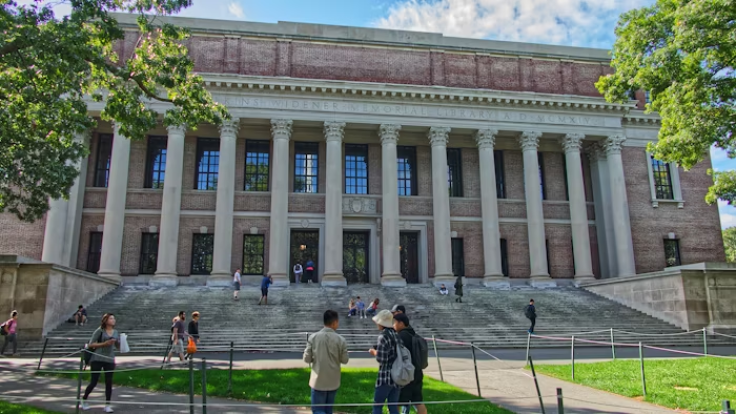A Massachusetts judge recently ruled in favor of Harvard University in a case involving the theft and sale of human remains by a former employee of its medical school, according to a report by CNN on Tuesday.

Allegations and Legal Proceedings
The case revolves around Cedric Lodge, who was the manager of the medical school's morgue until his termination by Harvard in May 2023. Following his dismissal, Lodge and his wife faced federal charges, including conspiracy and interstate transport of stolen goods, related to the theft and trafficking of human cadavers. Families of the deceased individuals whose remains were allegedly misused subsequently filed a lawsuit against Harvard, claiming negligence in handling donated bodies.
Judge's Decision
In a ruling issued by Judge Kenneth Salinger, the civil case against Harvard was dismissed due to insufficient evidence of negligence. Salinger also cleared employees of Harvard Medical School's Anatomical Gift Program from any liability. While acknowledging the severity of Lodge's actions, Salinger emphasized that Harvard and its staff could not be held vicariously responsible for his misconduct.
According to Salinger, "Though the appalling things that Lodge allegedly did are not protected by this immunity statute, the allegations in the complaints make clear that Harvard, Cicchetti, and Fay are not vicariously liable for Lodge's actions."
Legal Responses and Future Steps
Despite the ruling, the families of the deceased individuals plan to appeal the decision. Attorney Kathryn Barnett, representing multiple relatives involved in the case, confirmed plans for further legal action.
The case highlights the complexities of liability and accountability in instances of criminal behavior by employees within academic institutions. While Harvard has been absolved of legal culpability, the ongoing legal battle underscores the need for stringent oversight and adherence to established protocols within medical institutions in handling anatomical donations.
Ethical and Moral Considerations
Beyond the legal ramifications, the case also raises ethical questions surrounding the handling of human remains in educational settings. Donating one's body for medical research or educational purposes is a deeply personal decision, often made with the expectation that the remains will be treated with respect and dignity. Instances of theft and misuse, such as those alleged in this case, not only betray the trust of donors and their families but also tarnish the reputation of institutions entrusted with their care.
Ensuring Transparency and Accountability
In light of this case, it is imperative for institutions like Harvard to reevaluate their protocols and practices concerning anatomical donations. Transparent communication with donors and their families, rigorous oversight of facilities and personnel handling cadavers, and regular audits of procedures are essential to prevent similar incidents in the future.
While the court's ruling absolves Harvard of legal liability, the case serves as a sobering reminder of the ethical and moral obligations inherent in the handling of human remains for educational purposes. Moving forward, it is incumbent upon institutions to uphold the highest standards of integrity, transparency, and accountability in their handling of anatomical donations, ensuring that the trust placed in them by donors and their families is never compromised.
© 2025 University Herald, All rights reserved. Do not reproduce without permission.








